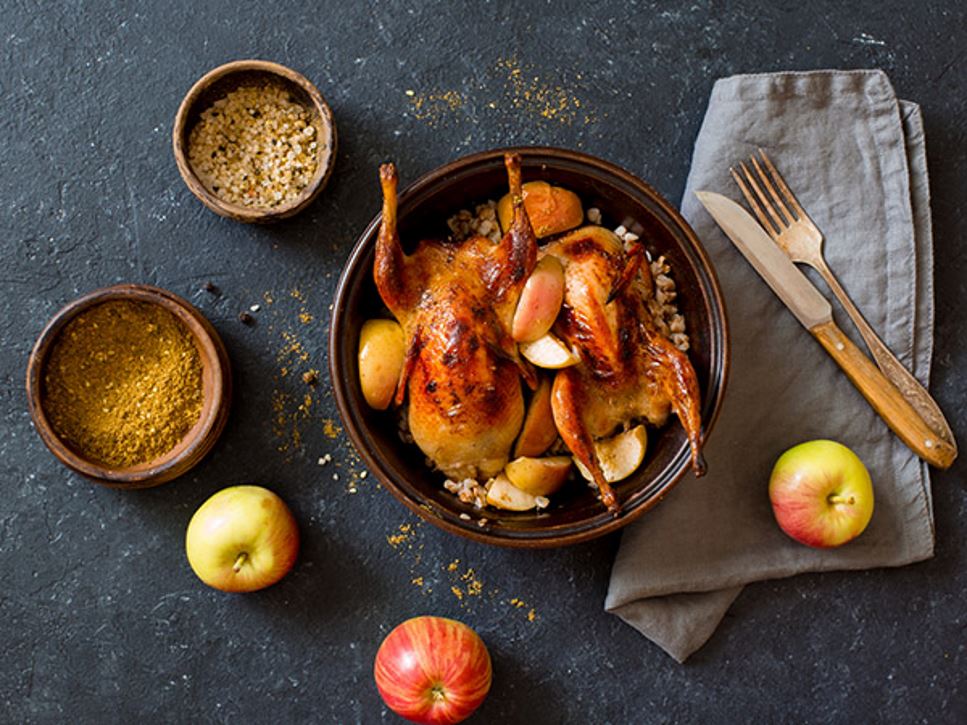A Beginner's Guide to Game Meats
Have a wild appetite? Recently, more game meat— wild animals and birds — has been making its way from the farm to your table.
From elk, deer, moose, caribou and antelope to goose, pheasant and quail, the variety and availability of farm-raised game continues to grow.
If you plan to adventure into the game meat territory, remember this quick guide for safe handling and cooking tips for meat from game animals.
Where Does Game Meat Come From?
Game animals may be raised on farms or ranches or, in some cases, hunted. For ranch-raised game, the animals are able to roam and eat from the land. Farm-raised game live in more confined outdoor areas and feed on grains such as wheat, alfalfa or corn.
Since their diets and activity levels differ from those of domestic animals and poultry, the meat of farm-raised game animals has a different flavor — stronger than domesticated species, but milder than wild game.
How Do I Know Game Meat Is Safe?
Just like domestic meats, some game animals are inspected by the U.S. Department of Agriculture, and others, by the Food and Drug Administration.
The USDA has mandatory inspection authority over all food products from cattle, sheep, swine, goats, turkey, ducks, geese, chicken and much more. The USDA also does voluntary inspection of reindeer, elk, deer, antelope, water buffalo, bison, migratory water fowl, game birds and rabbits.
The FDA has jurisdiction over imported game not covered by the federal meat and poultry inspection laws. Meat and poultry exported from another country, must meet all safety standards applied to foods produced in the United States.
How to Cook Game Meats
As with other meats, it's important to cook game meat to a safe minimum internal temperature to eliminate harmful foodborne pathogens. Be sure to use a food thermometer to ensure that meats are thoroughly cooked.
You can also download our "Is My Food Safe?" app for a pocket-guide on cooking game to safe temperatures.
And as always, when you prepare game meat, reduce your risk of food poisoning with the basic food safety principles of: Wash, Separate, Cook and Refrigerate.
Lastly, keep in mind too that most game tends to be leaner than that of domesticated animals, so cook game meat slowly to keep it tender.
Find a Nutrition Expert
Looking for credible nutrition information and recommendations? The Academy of Nutrition and Dietetics' network of credentialed food and nutrition practitioners are ready to help!

